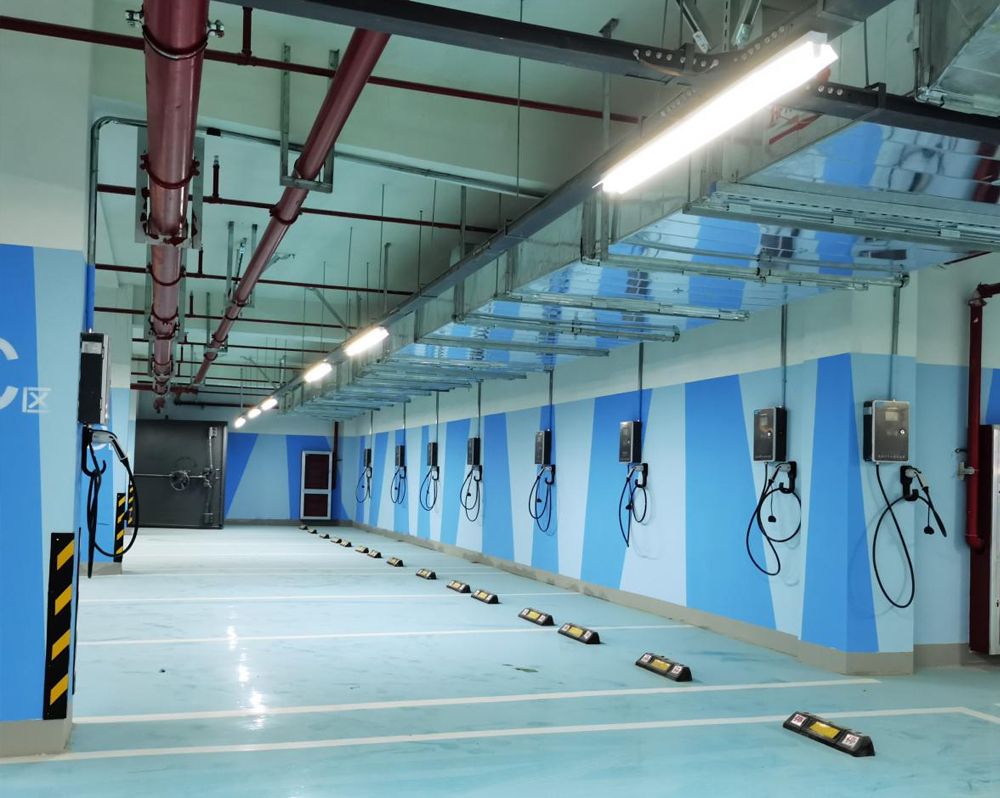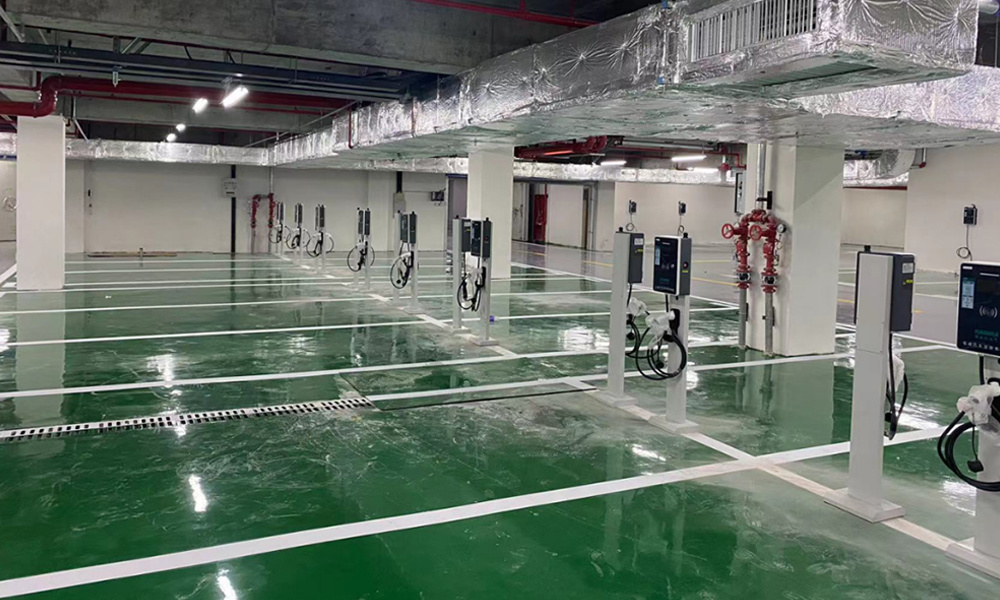With the rapid growth of electric vehicles (EVs) worldwide, the development of charging infrastructure has become a crucial component in the shift toward sustainable transportation. In the Middle East, the adoption of electric vehicles is accelerating, and traditional fuel-powered vehicles are gradually being replaced by cleaner, more efficient electric alternatives. In this context, GB/T electric vehicle charging stations, one of the leading charging technologies globally, are making their mark in the region, offering a robust solution to support the expanding electric vehicle market.
The Rise of the Electric Vehicle Market in the Middle East
In recent years, countries in the Middle East have taken proactive steps to promote green energy and reduce carbon emissions, with electric vehicles at the forefront of these efforts. Nations like the UAE, Saudi Arabia, and Qatar have introduced policies that support the growth of the electric vehicle market. As a result, the share of electric vehicles in the region’s car market is steadily increasing, driven by both government initiatives and consumer demand for cleaner alternatives.
According to market research, the electric vehicle fleet in the Middle East is projected to exceed one million vehicles by 2025. As electric vehicle sales surge, the demand for charging stations is also rapidly growing, making the development of a reliable and widespread charging infrastructure essential to meet this increasing need.
The Advantages and Compatibility of GB/T Electric Vehicle Charging Stations
GB/T electric vehicle charging stations (based on the GB/T standard) are gaining popularity in the Middle East for their superior technology, broad compatibility, and international appeal. Here’s why:
Wide Compatibility
GB/T EV Chargers are not only compatible with Chinese-made electric vehicles but also support a wide range of international brands such as Tesla, Nissan, BMW, and Mercedes-Benz, which are popular in the Middle East. This broad compatibility ensures that the charging stations can meet the needs of a diverse range of electric vehicles in the region, solving the issue of inconsistent charging standards.
Efficient and Fast Charging
GB/T charging stations support both AC and DC fast-charging modes, offering quick and efficient charging services. DC fast chargers can significantly reduce charging time, enabling electric vehicles to charge from 0% to 80% in as little as 30 minutes. This high-speed charging capability is particularly valuable for electric vehicle owners who need to minimize downtime, especially in busy urban areas and along highways.
Advanced Features
These charging stations are equipped with advanced features such as remote monitoring, fault detection, and data analysis. They also support multiple payment options, including card-based and mobile app payments, making the charging experience seamless and user-friendly.
Applications of GB/T Electric Vehicle Charging Stations in the Middle East
Public Charging Stations
Major cities and highways in the Middle East are rapidly adopting large-scale electric vehicle charging stations to cater to the growing demand for charging infrastructure. Countries like the UAE and Saudi Arabia are focusing on building charging networks along major roads and in urban centers, ensuring that electric vehicle users can conveniently charge their cars. These stations often utilize GB/T charging technology to provide fast and reliable charging for various types of electric vehicles.
Commercial and Office Spaces
As electric vehicles become more popular, shopping malls, hotels, office buildings, and commercial parks in the Middle East are increasingly installing charging stations. GB/T chargers are the preferred choice for many of these establishments due to their high efficiency and ease of maintenance. Notable cities like Dubai, Abu Dhabi, and Riyadh are already seeing widespread adoption of electric vehicle charging points in commercial districts, creating a convenient and eco-friendly environment for customers and employees alike.
Residential Areas and Private Parking
To meet the daily charging needs of electric vehicle owners, residential complexes and private parking lots in the Middle East are also beginning to install GB/T charging stations. This move allows residents to conveniently charge their electric vehicles at home, and some installations offer smart charging management systems that allow users to monitor and control their charging remotely via mobile apps.
Public Transportation and Government Initiatives
Some Middle Eastern countries, including the UAE and Saudi Arabia, have started transitioning their public transportation systems to electric vehicles. Electric buses and taxis are becoming more common, and as part of this shift, electric vehicle charging infrastructure is being integrated into public transport hubs and bus stations. GB/T charging stations are playing a pivotal role in ensuring that public transport fleets are charged and ready to go, supporting cleaner, more sustainable urban mobility.

The Scale of GB/T Electric Vehicle Charging Stations in the Middle East
The deployment of GB/T electric vehicle charging stations is picking up pace across the Middle East. Countries like the UAE, Saudi Arabia, Qatar, and Kuwait have already started to embrace this technology, with governments and private enterprises actively working to expand the charging infrastructure.
United Arab Emirates: Dubai, as the economic and business hub of the UAE, has already established several charging stations, with plans to expand the network in the coming years. The city aims to have a robust network of charging stations to support its ambitious electric vehicle targets.
Saudi Arabia: As the largest economy in the region, Saudi Arabia is pushing for electric vehicle adoption as part of its Vision 2030 plan. The country aims to deploy over 5,000 charging stations nationwide by 2030, with many of these stations utilizing GB/T technology.
Qatar and Kuwait: Both Qatar and Kuwait are also focusing on building electric vehicle infrastructure to promote cleaner transportation. Qatar has started installing GB/T charging stations in Doha, while Kuwait is expanding its network to include charging stations at key locations throughout the city.

Conclusion
GB/T electric vehicle charging stations are playing a crucial role in supporting the transition to electric mobility in the Middle East. With their fast-charging capabilities, broad compatibility, and advanced features, these stations are helping to meet the growing demand for reliable and efficient charging infrastructure in the region. As the electric vehicle market continues to expand, GB/T charging stations will play a key role in ensuring the Middle East’s sustainable and green mobility future.
Learn More About EV Charging Stations>>>



Post time: Jan-08-2025




